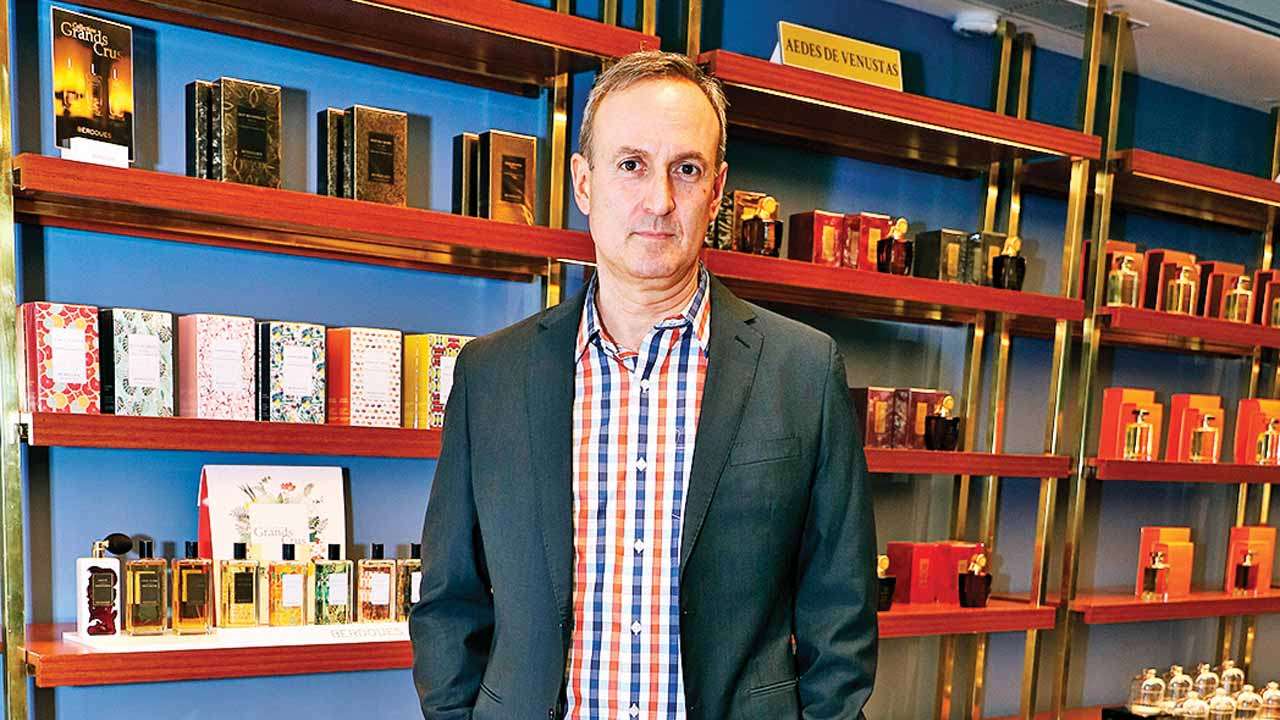
Picking the perfect perfume is a tedious task. Walk into any store and there are hundreds of brands vying for one’s attention. Fragrances can do a lot from lifting one’s mood to making one appear more attractive. So how do you choose? Chandler Burr, founder and ex-curator of the department of Olfactory art in the Museum of Art and Design, who was in the city recently, insists anyone can train themselves in telling scents apart. After Hrs caught up with him at the launch of Scentido, a luxury fragrance store.
I’m not a perfumer at all. I have a masters degree in International economic trade theory and Japanese political economy. I guess you fall into things in life. I was in Paris and I met this man (Luca Turin) who’s a genius at perfumes. And who had an extraordinary theory of how we smell. The reason he was so interested in it was because he was a passionate lover of perfume and has an encyclopedic knowledge of it. And I ended up writing a book on him, called The Emperor of Scent. Part of that book took place here in India and there’s an entire chapter on it, I met a perfumer, an attarwala who became a good friend of mine. It’s just very interesting how it took over my whole life. The book went to the New Yorker, who had me write a piece. The New York Times read the piece and then asked me to be their perfume critic.
There’s a fundamental misunderstanding that people have to have some kind of bionic nose. I don’t smell any more or any less than you or anyone else. I simply have been lucky enough to have had training in what rose absolute is used and what allyl amyl glycolate smells like, and so on. And you can do the same thing. Anyone can, if they sat down and studied it.
It’s actually very easy. You wear it and if it has good structure, if it stays together on your skin, in five minutes, in one hour, in five hours it has to smell good on the skin. The bad perfumes and the poorly made perfumes simply fall apart, disappear or they turn. It has to diffuse correctly and has to smell good. It has to have an originality, for it to be great.
You really just have to put some time into it at first and you have to try things, ask about, find things that you like as well as ask about other perfumes. You wear them on different parts of your body and you just wear them over time and you discover what you like.
I find them difficult for me to appreciate and understand. They’re made in a very different way and I haven’t understood India’s relationship to scent. I know it’s important in wedding ceremonies and religious ceremonies and so on. It’s really just that Indians have not commercialised it, it’s a much more freer form, not a retailed form and we have.